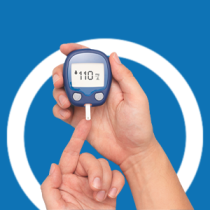Diabetes is a growing health concern in South Africa, with an increasing number of individuals affected by the condition. The prevalence of diabetes in the country is steadily rising, and it's crucial for South Africans to be aware of the warning signs and available treatments to manage this chronic disease effectively. In this listicle, we'll explore six warning signs of diabetes and potential treatments tailored to the South African context.
Warning Signs of Diabetes:
Frequent Urination: One of the most common signs of diabetes is increased urination. If you find yourself needing to urinate more often, particularly at night, it might be a sign of diabetes. This is often accompanied by excessive thirst and can lead to dehydration.
Unexplained Weight Loss: Sudden, unexplained weight loss can be a red flag for diabetes. When the body can't use sugar for energy properly, it starts breaking down fat and muscle for energy, leading to weight loss.
Extreme Fatigue: If you feel consistently tired despite getting adequate sleep, diabetes could be the culprit. High blood sugar levels can lead to fatigue, as cells can't effectively utilize the energy from glucose.
Blurry Vision: Diabetes can impact the blood vessels in the eyes, leading to vision problems. Blurred or fluctuating vision may be a sign of diabetes-related eye issues.
Slow Wound Healing: High blood sugar levels can hinder the body's ability to repair itself. If you notice that cuts and wounds are slow to heal, it may indicate diabetes.
Tingling or Numbness: Diabetes can affect the nervous system, leading to tingling or numbness, particularly in the hands and feet. This condition is known as diabetic neuropathy.
Potential Treatments for Diabetes in South Africa:
Lifestyle Changes: Making lifestyle modifications is crucial for diabetes management in South Africa. Adopting a healthy diet that focuses on whole grains, lean proteins, and plenty of vegetables can help control blood sugar levels. Regular physical activity is also essential, encouraging community-based exercise programs can further support individuals in managing their diabetes through physical activity.
Oral Medications: Many individuals with diabetes in South Africa use oral medications to control their blood sugar levels. These medications are typically prescribed by healthcare professionals and can help improve insulin sensitivity and reduce blood sugar levels. Regular follow-up appointments are crucial to monitor the effectiveness of these medications and make necessary adjustments.
Insulin Therapy: In some cases, individuals with diabetes may require insulin therapy. This involves injecting insulin into the body to help regulate blood sugar levels. Insulin can be administered using various methods, such as insulin pens, syringes, or insulin pumps.
Diabetes Education and Support: Education and support programs are vital in helping individuals understand and manage their diabetes. Community health centres and healthcare providers can offer diabetes education, teaching patients about blood sugar monitoring, medication management, and healthy lifestyle choices. Support groups can also provide emotional support and motivation for those living with diabetes.
Regular Screenings and Check-ups: Regular check-ups with healthcare providers are essential for monitoring diabetes and its potential complications. South Africa should emphasize the importance of routine screenings for diabetes-related complications, including eye exams for diabetic retinopathy and foot exams to detect neuropathy and foot ulcers. Accessible and affordable healthcare facilities should be available for all South Africans to receive the necessary care.
Nutrition Support for Low-Income Communities: Addressing diabetes in South Africa requires targeted efforts to support low-income communities. Many individuals may struggle to access healthy foods due to financial constraints.
Diabetes is a significant public health concern in South Africa, and awareness of warning signs and available treatments is crucial for managing this chronic condition. By recognizing the warning signs and taking appropriate steps, individuals can improve their quality of life and reduce the risk of diabetes-related complications.
With Solace, you’re not alone





